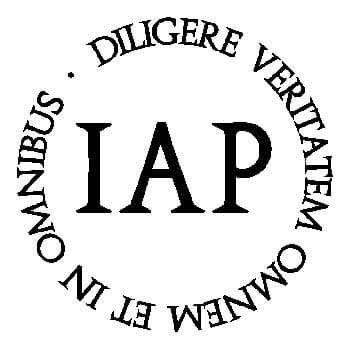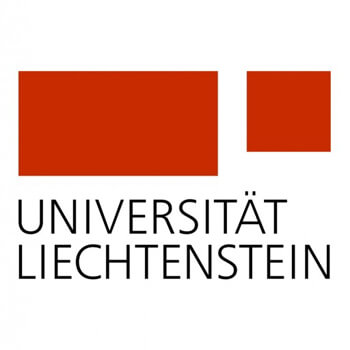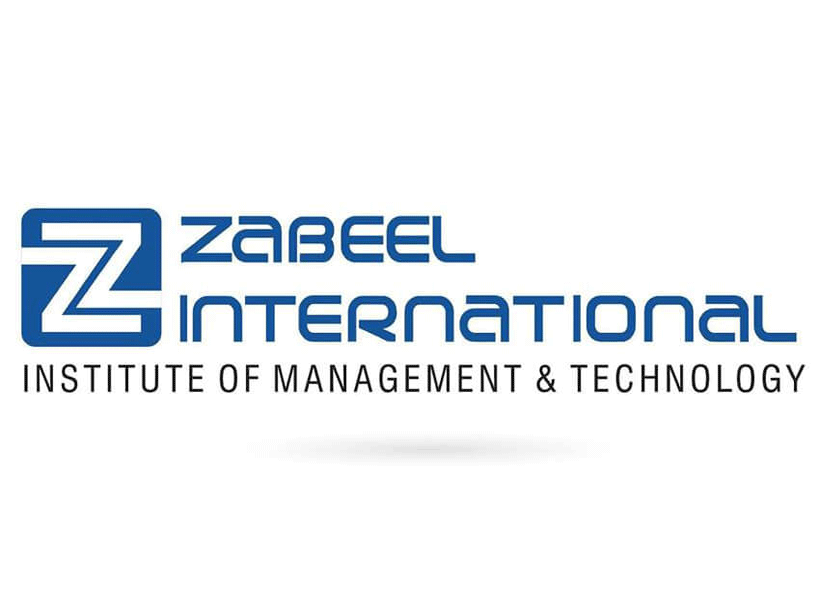International Academy of Philosophy

Founded: 1986
Address: Furst-Franz-Josef-Str. 19 - Vaduz, Liechtenstein
Phone: +423 2654343
Address: Furst-Franz-Josef-Str. 19 - Vaduz, Liechtenstein
Phone: +423 2654343
Here you find out International Academy of Philosophy complete information about fees, location, degree International Academy of Philosophy offers, number, website, and much more. International Academy of Philosophy is a leading university in Vaduz - Liechtenstein.
You can also find out jobs at International Academy of Philosophy for students, teachers, and professors. We also update the database for an internship at International Academy of Philosophy for students.
Philosophy is that science which seeks the answers to big questions like ‘Does man have free will?’, ‘Does man have a soul?’, ‘Is there a God?’ or ‘Are there rights and duties independent of what anyone believes, wants, or commands?’ or also ‘What does quantum mechanics show us about the nature of matter?’ The aim and the mission of the IAP is the promotion of philosophy, an...d not just of the historiography of philosophy, i.e. the investigation which philosopher wrote what when. In philosophy thus understood arguing with clarity and rigour, weighing reasons, and problem sovling are trained like in no other discipline. These ‘transferable skills’ are also outside of philosophical research of value and use. Especially in the German speaking countries, institutes of philosophy often pursue mainly historiography of philosophy while clarity and rigour are being neglected.
Besides research on the big philosophical questions, the IAP also pursues questions that are of more practical importance. First, philosophical questions concerning psychotherapy. Here the IAP engages especially with Logotherapy, which was founded by Viktor Frankl. Second, the IAP addresses philosophical questions concerning economics, state, and law. Here the IAP engages especially with the Austrian school of economics.
The IAP does not want to confine itself to academia, but also wants to make philosophy accessible for a wider public and create applicable results for the common good.
‘Realism’ here means only the assumption that there are things that are independent from our mind and whose investigation is possible and worthwhile. In this sense the IAP follows the call ‘things in themselves!’, which the realists held against the nominalists and which Edmund Husserl adopted. That seems obvious, but there have been many philosophical movements which turned away from the task of answering philosophical questions and concerned themselves with other things: historiography of philosophy, history, cultural studies, social science, human science, texts, hermeneutics, language, concepts, semantics, consciousness, sense data, transcendentals, or categories of thought, and also esoteric, unclear style as it arose in German idealism. Many authors turned especially away from metaphyscis (e.g. the questions ‘Does man have a soul?’, ‘Are there objective duties?’, or ‘Is there a God?’), claiming that they are meaningless or unanswerable. The IAP resists such attempts to limit research and asking questions.
By its motto, ‘Love the truth, the whole truth, and the truth about everything’ (‘Diligere veritatem omnem et in omnibus’), the IAP is committed to scientific (in the wide sense which includes the humanities) search for truth and to search for the right methods to find the truth, in contrast to all movements that depreciate reason, the weighing of evidence, and clear and rigorous arguing and writing, or that give up the search for truth. In particular the postmodernists, who are much more influential than most people can imagine, are claiming that there is no truth, that truth is just a power play, that there is no reality, etc. The IAP criticises this anti-rational rhetoric, which is a strategy to promote a certain political agenda.
‘Phenomenology’ here means only the thesis, which is opposed to empiricism and positivism, that we can obtain knowledge about the world not only through our bodily sense organs. Moral truths and truths about what is possible, for example, we come to know in different ways. (‘Phenomenology’ means that we can obtain knowledge through phenomena, i.e. through contents of thought in which something appears to us to be such-and-such.)
The IAP has no fixed philosophical position, but it takes into account the following views: non-reductive moral realism, material value-ethics (natural law), the existence of human souls, theism (i.e. the existence of a creator God), human free will. The IAP is not connected to any church or confession, but it is open for the Christian revelation. The IAP is committed to the principle that the students are free in which views they hold and defend and that marks depend only on the quality of their arguments.
The IAP is a private, state regognised university in the Principality of Liechtenstein. Its teaching languages are German, English, and Spanish. It was founded 1986 in Liechtenstein. 2008 until 2012 there was no teaching in Liechtenstein, in 2013 the IAP re-launched its doctoral program. Further, the IAP offers seminars and one-to-one tutorials, which, due to the „European Credit Transfer System“ (ECTS), can be credited also at other universities. Doctoral study and tutorials can also be pursued partly as distance learning.
A partner of the IAP Liechtenstein is the Academia Internacional de Filosofía – Instituto der Filosofía Edith Stein in Granada. They use the same order of studies.
The IAP is a member of the International Lake Constance University, which has as members 30 universities and schools in Germany, Switzerland, Austria, and Liechtenstein. Students and professors of the member institutions may use libraries, refectories, courses, etc. of the other member universities, e.g. the University of Constance and the University of Zurich.
The IAP is governed by these organs: the Stiftungsrat, the Hochschulrat (which supervises the quality of teaching of research), and each campus has a Director.
For teaching the IAP uses the ‘tutorial system’, which is used at the universities of Oxford and Cambridge. Lectures, seminars, and disputations (i.e. debates with assigned positions) are being offered additionally where this is useful. Lectures are often an inefficient method of teaching, their disadvantage is that the student cannot regulate the velocity and that there is little interaction with the teacher. Therefore they are suited only as a supplement to tutorials, especially in the form of the argumentative lecture, in which the lecturer not only presents various views but defends his view with arguments and invites the objections of the audience. In the tutorial system the professor gives the student for each tutorial the task to read certain texts and to write an essay which answers a certain philosophical question. The essay is discussed in the tutoral. Tutorials last one hour and take place at intervals of one to four weeks. In the meantime the professor answers questions by email or orally.
You can also find out jobs at International Academy of Philosophy for students, teachers, and professors. We also update the database for an internship at International Academy of Philosophy for students.
Philosophy is that science which seeks the answers to big questions like ‘Does man have free will?’, ‘Does man have a soul?’, ‘Is there a God?’ or ‘Are there rights and duties independent of what anyone believes, wants, or commands?’ or also ‘What does quantum mechanics show us about the nature of matter?’ The aim and the mission of the IAP is the promotion of philosophy, an...d not just of the historiography of philosophy, i.e. the investigation which philosopher wrote what when. In philosophy thus understood arguing with clarity and rigour, weighing reasons, and problem sovling are trained like in no other discipline. These ‘transferable skills’ are also outside of philosophical research of value and use. Especially in the German speaking countries, institutes of philosophy often pursue mainly historiography of philosophy while clarity and rigour are being neglected.
Besides research on the big philosophical questions, the IAP also pursues questions that are of more practical importance. First, philosophical questions concerning psychotherapy. Here the IAP engages especially with Logotherapy, which was founded by Viktor Frankl. Second, the IAP addresses philosophical questions concerning economics, state, and law. Here the IAP engages especially with the Austrian school of economics.
The IAP does not want to confine itself to academia, but also wants to make philosophy accessible for a wider public and create applicable results for the common good.
‘Realism’ here means only the assumption that there are things that are independent from our mind and whose investigation is possible and worthwhile. In this sense the IAP follows the call ‘things in themselves!’, which the realists held against the nominalists and which Edmund Husserl adopted. That seems obvious, but there have been many philosophical movements which turned away from the task of answering philosophical questions and concerned themselves with other things: historiography of philosophy, history, cultural studies, social science, human science, texts, hermeneutics, language, concepts, semantics, consciousness, sense data, transcendentals, or categories of thought, and also esoteric, unclear style as it arose in German idealism. Many authors turned especially away from metaphyscis (e.g. the questions ‘Does man have a soul?’, ‘Are there objective duties?’, or ‘Is there a God?’), claiming that they are meaningless or unanswerable. The IAP resists such attempts to limit research and asking questions.
By its motto, ‘Love the truth, the whole truth, and the truth about everything’ (‘Diligere veritatem omnem et in omnibus’), the IAP is committed to scientific (in the wide sense which includes the humanities) search for truth and to search for the right methods to find the truth, in contrast to all movements that depreciate reason, the weighing of evidence, and clear and rigorous arguing and writing, or that give up the search for truth. In particular the postmodernists, who are much more influential than most people can imagine, are claiming that there is no truth, that truth is just a power play, that there is no reality, etc. The IAP criticises this anti-rational rhetoric, which is a strategy to promote a certain political agenda.
‘Phenomenology’ here means only the thesis, which is opposed to empiricism and positivism, that we can obtain knowledge about the world not only through our bodily sense organs. Moral truths and truths about what is possible, for example, we come to know in different ways. (‘Phenomenology’ means that we can obtain knowledge through phenomena, i.e. through contents of thought in which something appears to us to be such-and-such.)
The IAP has no fixed philosophical position, but it takes into account the following views: non-reductive moral realism, material value-ethics (natural law), the existence of human souls, theism (i.e. the existence of a creator God), human free will. The IAP is not connected to any church or confession, but it is open for the Christian revelation. The IAP is committed to the principle that the students are free in which views they hold and defend and that marks depend only on the quality of their arguments.
The IAP is a private, state regognised university in the Principality of Liechtenstein. Its teaching languages are German, English, and Spanish. It was founded 1986 in Liechtenstein. 2008 until 2012 there was no teaching in Liechtenstein, in 2013 the IAP re-launched its doctoral program. Further, the IAP offers seminars and one-to-one tutorials, which, due to the „European Credit Transfer System“ (ECTS), can be credited also at other universities. Doctoral study and tutorials can also be pursued partly as distance learning.
A partner of the IAP Liechtenstein is the Academia Internacional de Filosofía – Instituto der Filosofía Edith Stein in Granada. They use the same order of studies.
The IAP is a member of the International Lake Constance University, which has as members 30 universities and schools in Germany, Switzerland, Austria, and Liechtenstein. Students and professors of the member institutions may use libraries, refectories, courses, etc. of the other member universities, e.g. the University of Constance and the University of Zurich.
The IAP is governed by these organs: the Stiftungsrat, the Hochschulrat (which supervises the quality of teaching of research), and each campus has a Director.
For teaching the IAP uses the ‘tutorial system’, which is used at the universities of Oxford and Cambridge. Lectures, seminars, and disputations (i.e. debates with assigned positions) are being offered additionally where this is useful. Lectures are often an inefficient method of teaching, their disadvantage is that the student cannot regulate the velocity and that there is little interaction with the teacher. Therefore they are suited only as a supplement to tutorials, especially in the form of the argumentative lecture, in which the lecturer not only presents various views but defends his view with arguments and invites the objections of the audience. In the tutorial system the professor gives the student for each tutorial the task to read certain texts and to write an essay which answers a certain philosophical question. The essay is discussed in the tutoral. Tutorials last one hour and take place at intervals of one to four weeks. In the meantime the professor answers questions by email or orally.
Read More
Details:
LeaderShip:
Fees:
Time:
Phone Number: +423 2654343
City: Vaduz
Fees:
Time:
Phone Number: +423 2654343
City: Vaduz
Timing:
Country: Liechtenstein
Staff:
Website: http://www.iap.li
Country: Liechtenstein
Staff:
Website: http://www.iap.li
Subjects:
Jobs in International Academy of Philosophy
Currently, there is no job opening in International Academy of Philosophy as per our database.













Leave a Reply